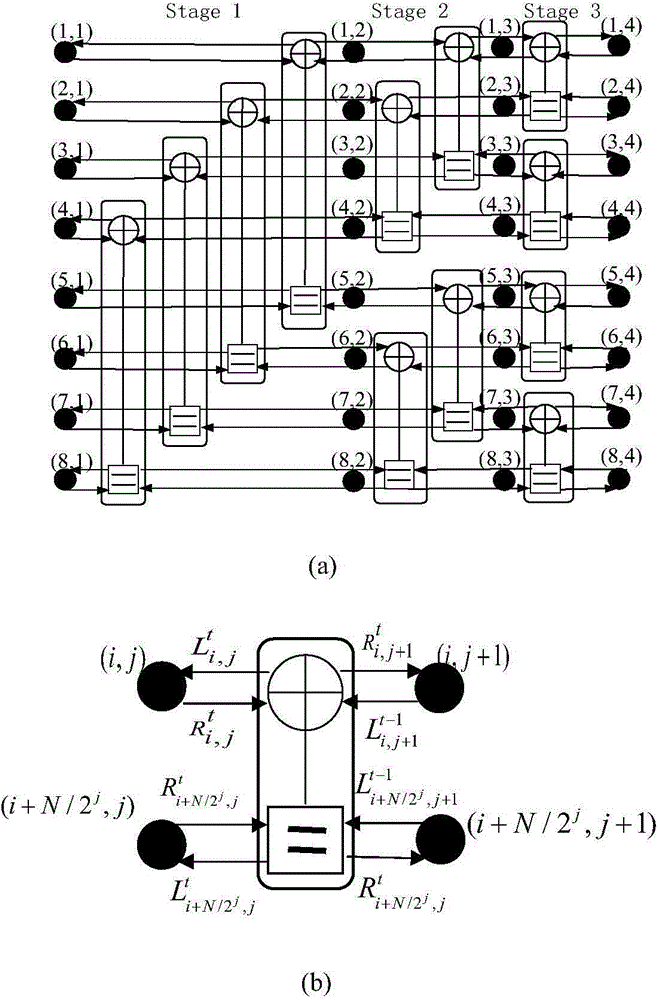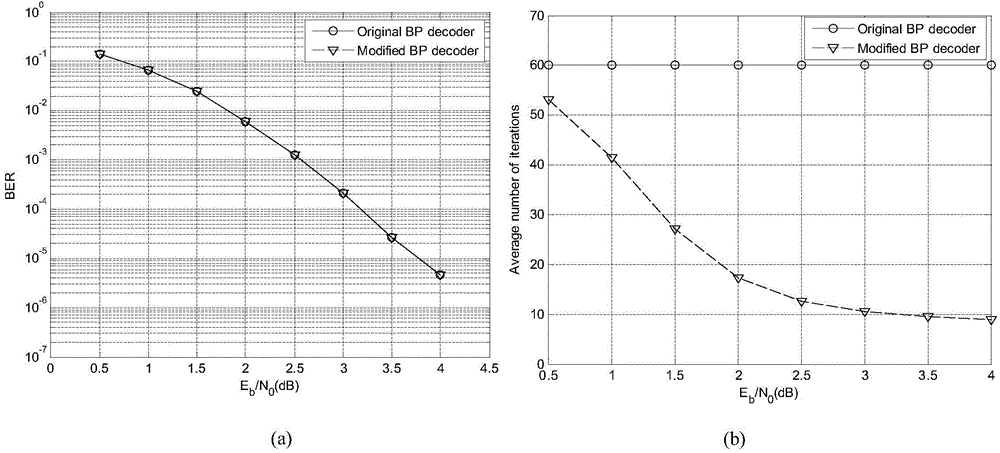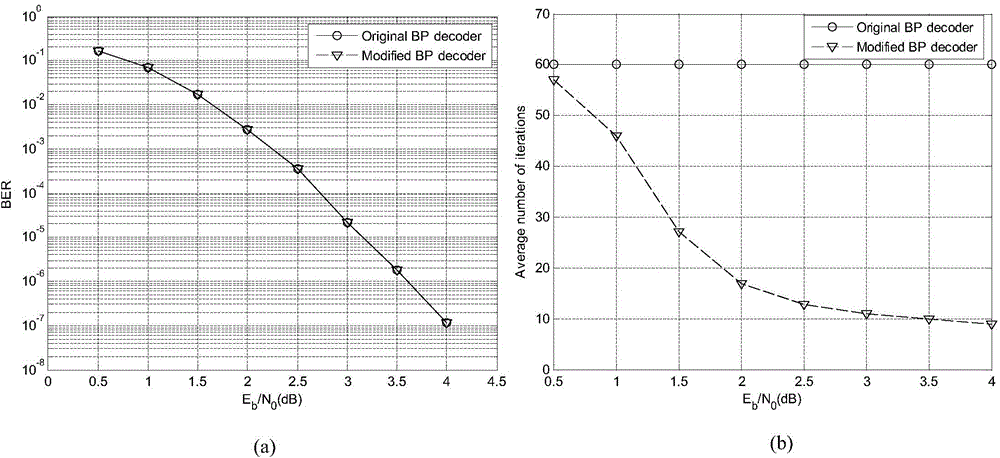Method for improving BP (belief propagation) decoding by use of polarisation code based on early termination of iterative strategy
A technology of early termination and polar codes, applied in the field of computer decoding, can solve problems such as calculating large amounts of data and high computational complexity
- Summary
- Abstract
- Description
- Claims
- Application Information
AI Technical Summary
Problems solved by technology
Method used
Image
Examples
Embodiment 1
[0082] Under the condition that the maximum number of iterations is 60 and the convergence threshold ε=0.01, the bit error rate curves of the improved BP decoding algorithm and the original BP decoding algorithm of the polar code with parameters (512, 256) and each signal-to-noise Compared with the curve of the average number of iterations; the results are as follows figure 2 shown; the curve in the figure shows that compared with the original BP decoding algorithm, the improved BP decoding algorithm of the polar code with parameters (512, 256) has no loss in performance, and the average number of iterations is greatly reduced. When the SNR is 3dB , the average number of iterations is reduced by approximately 80%, and as the SNR increases, the average number of iterations gradually decreases and eventually levels off.
Embodiment 2
[0084] Under the condition that the maximum number of iterations is 60 and the convergence threshold ε=0.01, the bit error rate curves of the improved BP decoding algorithm and the original BP decoding algorithm of the polar code with parameters (1024, 512) and each signal-to-noise Compared with the curve of the average number of iterations; the results are as follows image 3 shown; the curve in the figure shows that compared with the original BP decoding algorithm, the improved BP decoding algorithm with parameters (1024, 512) has no performance loss, and the average number of iterations is greatly reduced. When the signal-to-noise ratio is 3dB , the average number of iterations is reduced by approximately 80%, and as the SNR increases, the average number of iterations gradually decreases and eventually levels off.
Embodiment 3
[0086] Under the condition that the maximum number of iterations is 60 and the convergence threshold ε=0.01, the bit error rate curves of the improved BP decoding algorithm and the original BP decoding algorithm of the polar code with parameters (2048, 1024) and each signal-to-noise Compared with the curve of the average number of iterations; the results are as follows Figure 4 shown; the curve in the figure shows that compared with the original BP decoding algorithm, the improved BP decoding algorithm of the polar code with parameters (2048, 1024) has no loss in performance, and the average number of iterations is greatly reduced. When the signal-to-noise ratio is 3dB , the average number of iterations is reduced by approximately 80%, and as the SNR increases, the average number of iterations gradually decreases and eventually levels off.
[0087] Compared with the original BP decoding algorithm, the improved BP decoding algorithm has no performance loss and greatly reduces ...
PUM
 Login to View More
Login to View More Abstract
Description
Claims
Application Information
 Login to View More
Login to View More - R&D
- Intellectual Property
- Life Sciences
- Materials
- Tech Scout
- Unparalleled Data Quality
- Higher Quality Content
- 60% Fewer Hallucinations
Browse by: Latest US Patents, China's latest patents, Technical Efficacy Thesaurus, Application Domain, Technology Topic, Popular Technical Reports.
© 2025 PatSnap. All rights reserved.Legal|Privacy policy|Modern Slavery Act Transparency Statement|Sitemap|About US| Contact US: help@patsnap.com



